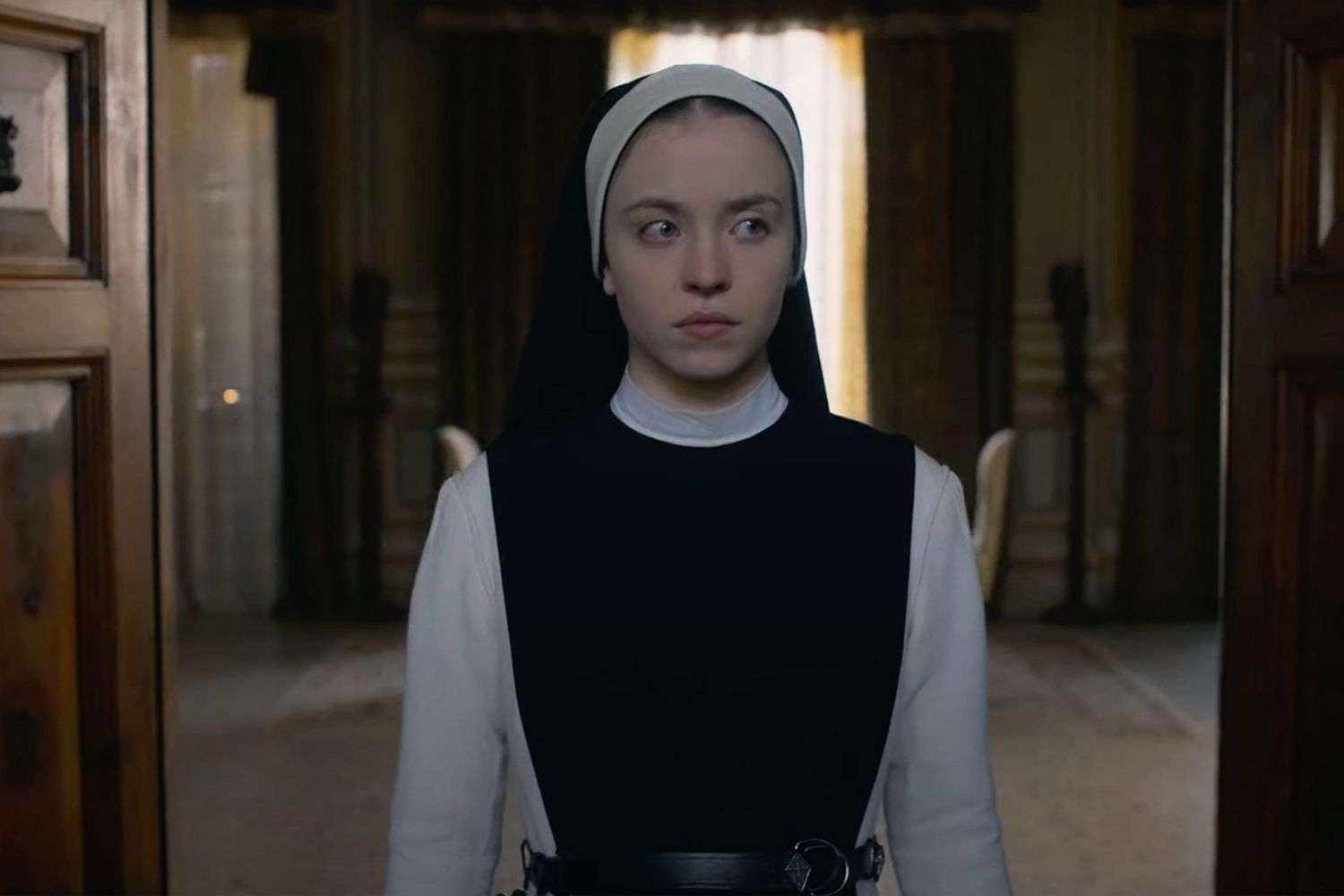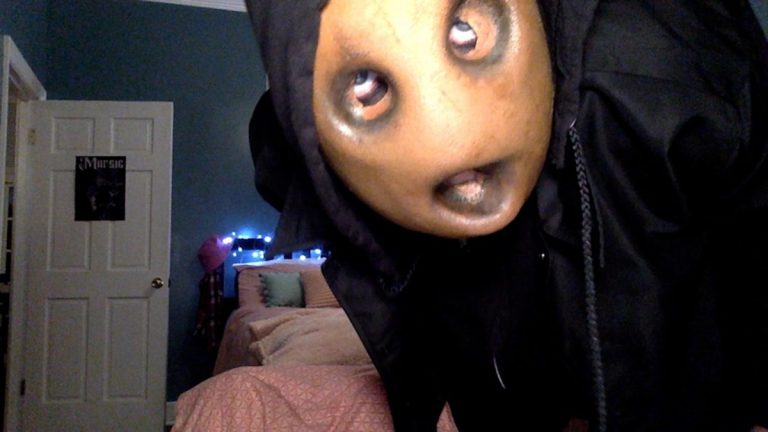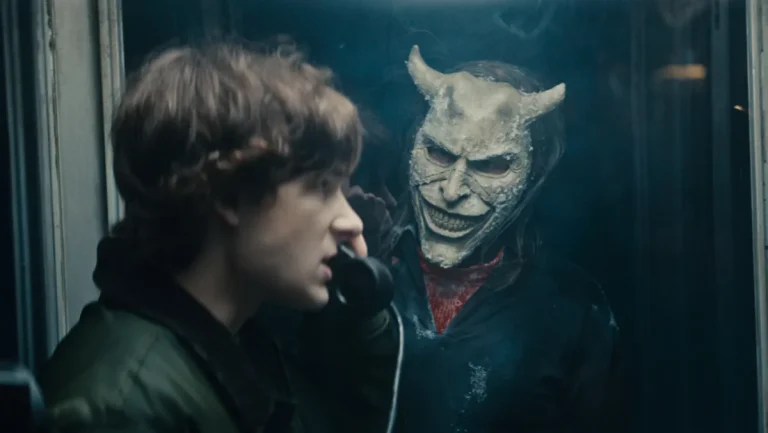Immaculate (2024) Movie Review: For some reason, despite their longstanding commitment to embodying the righteous piety and dutiful sacrifice dormant in the souls of all sinners, there’s something inherently sinister in the portrayal of nuns in the media. Perhaps it’s precisely because of that elevated representation of the most selfless and caring factions of humanity that storytelling—cinema specifically—has long held a fascination with prodding the fortitude of God’s brides and seeking within them the allure of transgression.
Some filmmakers (Rose Glass with “Saint Maud”) tackle this through the lens of horror, while others (Paul Verhoeven’s sizzling “Benedetta”) opt towards the more titillating view. Michael Mohan’s Immaculate attempts to find the sweet spot between the two, but in skimming his hands through each collection basket, his middling lack of commitment to either extreme makes for an experience entirely void of devotion, either in its favor or against it.
Sister Cecilia (Sydney Sweeney) is an American nun-in-the-making who packs up what little she owns only to cast it all aside and serve God in a far more illustrious setting for the Catholic faith than her native Detroit: a convent deep in the Italian countryside. Upon her arrival, the devout believer’s sunny disposition is gradually shattered by the grueling nature of her daily work serving the Lord and putting up with her new sisters—ranging from decent to maniacal to mentally distressed—before her problems begin to test her in entirely new ways. Lo and behold, Cecilia has become the vessel of an immaculate conception, carrying a child in her womb despite never having made it with a man, and the resulting attention from her new home has her questioning her devotion in the face of this malevolent miracle.
If 2023 taught us anything, it was that Sweeney is something of an enigma in the pantheon of Euphoria-bred superstars-in-waiting. Reality demonstrated an adeptness towards smaller, restrained acting work befitting the actor’s muted vocal tones, while the runaway hit “Anyone But You” all but confirmed that her incredible movie star looks have yet to be paired with the charisma necessary to spark a believable romance with Glen Powell’s chiseled abs.
She has the disposition and the drive, but the versatility to explore the corners of the medium, both big and small, found in co-stars Zendaya or Jacob Elordi still eludes her. “Immaculate” seems intent on splitting the difference through the ever-reliable horror vehicle, giving Sweeney a largely solo showcase to sharpen that leading role potential.

For what it’s worth, Sweeney is given plenty of room to wail in agony and confusion, which is largely what Mohan calls upon her for and which she delivers with enough believability to avoid total criticism. When her moments of scream queen auditioning fall to the wayside, however, “Immaculate” gives Sweeney little space to shine beyond her typical wide-eyed (read: vacant) expression, here applied for the purposes of invoking “Daddy’s Girl just one glass of wine too many away from being Father’s Greatest Sinner.”
At a tight 89 minutes, “Immaculate” illustrates no desire to mar itself in the minutiae of character and plot development, instead content to ride the line of a visually muted in-and-out horror experience, a wannabe giallo stuck in a swamp of 2010s horror aesthetics. Even those of us not entirely enamored with the Dario Argento era of Italian blood splatter and obnoxious sound design can appreciate the giallo auteurs’ total commitment to the bit, though with no strong thematic work or characterization to take it to the realm of modern “elevated” horror. But with no visual panache to carry it across the implied ignorability of those meager developments, one comes away from “Immaculate” feeling as if Mohan had no strong convictions of his own to probe those of his subjects.
We never get any indication of what Cecilia’s relationship is towards her unborn child, this hailed saviour, this resurrection of Christ; does she feel a motherly warmth towards the prospect, or does she resent and fear this product of unknown conception? This doesn’t necessarily have to be a problem—Mohan doesn’t seem to have any pretenses about wanting to reimagine “Rosemary’s Baby” or anything—but if all we’re offered across this runtime is a bevy of uninspired jump scares and occasional teases at more adventurous body horror, then the lacking narrative is hardly a worthwhile trade-off. Come to think of it, we barely learn anything about Cecilia, and with no style to bounce off of, this absorbing blank-slate quality sparks little entertainment value.
One of the greatest thematic and narrative draws of religion (Christianity in particular) is that its often-staunch absolutism rubs against our inherent human capacity for curiosity, enticing us to ask questions. The weakest religious films, therefore, tend to be those that ask no questions and placate that absolutism with tepid agreement. (It’s the very reason why some of the most provocative, enduring religious films, like Ken Russell’s notorious “The Devils,” find themselves difficult to locate in the mainstream, rendering them even more tantalizing for the curious viewer as a result.)
As a horror film in which the Church is a figure of menace, “Immaculate” is, by definition, the sort of work that should avoid such milquetoast categorization, but Michael Mohan finds himself so uninterested in his setting and its implications outside the catalyst of his premise that the end result is just as flat and unengaging as any film that simply hails the Vatican without refute.






![The Beasts [2022]: ‘IFFK’ Review – A Pensive Rural Thriller that Unveils Xenophobia and Class war Lurking in Western Europe](https://79468c92.delivery.rocketcdn.me/wp-content/uploads/2022/12/The-Beasts-As-bestas-Movie-Review-768x528.png)

